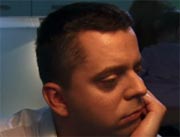
THURSDAY, April 18 (HealthDay News) — Asperger’s syndrome is disappearing as an official diagnosis, but people who live with its symptoms will continue to struggle.
“I would say that Asperger’s is sort of like ‘autism light,'” said Liane Holliday Willey, senior editor of the Autism Spectrum Quarterly. “Our verbal skills tend to be more developed, and we have less moments of going inward. We don’t present as obvious, so we kind of fly under the radar.”
“But our [lack of] ability to read your mind or read your motives is a big red flag,” she said. “And that’s what gets us hurt physically and emotionally and career-wise.”
Holliday Willey, 53, has written books on life with Asperger’s and serves as an autism consultant in Grand Rapids, Mich.
“I’ve had very bad things happen because I couldn’t read perspectives,” she said. “I’m pretty smart, and I’m educated and you’d meet me at the mall and think, ‘There’s a quirky girl.’ You’d never have any idea how much of a struggle this all is for me.”
Certain situations can be too much, Holliday Willey said.
“When I sit down to take a test, to interact with a human, to be on my own without support — all of these groovy strategies I’ve created over these past 50 years can disappear pretty quickly,” she said. “So I can kind of go back to a more obvious state of autism.”
“Now I can take a minute to go reboot my hard drive and figure out how to behave, until it gets to the point where I’m just emotionally tired and I make my exit,” she said.
Brian King, a relationship coach for people on the autism spectrum, was diagnosed with Asperger’s in 2007.
“I’ve learned a lot of strategies that allow me to manage,” said King, who lives in Illinois. “And if by virtue of those strategies I’m able to manage life more effectively, am I by any means beyond the Asperger’s? No way.”
He said children with Asperger’s need a lot more than just traditional talk therapy.
“You need to work with this child’s entire support system — parents, siblings, educators — to give this kid the best chance to succeed,” King said. “People on the spectrum are unique in the way they’re challenged and the way they need to be approached and to learn the skills they need to succeed in life. The learning curve can be huge.”
Eric Lipshaw, a 21-year-old student at Oakland University in Rochester, Mich., found out he had Asperger’s at age 7.
“Obviously it made things harder with friendships over the years,” Lipshaw said. “Social cues, and I was oversensitive to noises and smells. I remember often in elementary and middle school I’d spend almost an hour or two a week in the [nurse’s] office. I’d get terrible headaches from the fluorescent light bulbs cycling.
“I was stuck, I was rigid, I absolutely despised changes in schedule,” Lipshaw said. “I was pretty much bullied my entire high school career.”
“My parents worked their [rear ends] off — and I’ll love them forever for it — to make sure I was as well-adjusted as I could be,” he said.
Today “nobody would realize I’m anything but a little eccentric until I disclose to them that I have Asperger’s,” said Lipshaw, who has a campus radio show and hopes to work as an on-air radio talent after graduation.
Decades ago, Karen Rodman married a man who “I knew all along was intelligent, a musician, quiet — but I did not understand to what extent [he had problems].”
It wasn’t until many years later that she realized his issues went far beyond being what she called “ornery.” The local medical community was no help, Rodman said.
Eventually, as she was contemplating divorce, the marriage counselor pulled her aside. “She told me that she thought my husband had Asperger’s syndrome and Tourette’s [syndrome],” Rodman said.
Rodman had never heard of Asperger’s. She spent the next weekend in book stores reading anything she could find on autism and Asperger’s.
“Light bulbs over my head the more I read,” she said. “My husband had been living a lifetime with two neurological-biological-developmental disabilities — and no one knew it except his family, behind closed doors.” She boils down her existence as a “neurotypical” — a term for someone not on the autism spectrum — spouse to one word: lonely.
In 1997, Rodman founded the international support group Families of Adults Affected by Asperger’s Syndrome.
Holliday Willey’s father also had Asperger’s for most of his life, but only discovered that as an older man.
“My father was 75 when he was diagnosed,” she said. “At that point, he said, ‘Now I understand why I was bullied. Now I understand why I was never promoted to management.’ He was a brilliant engineer. But he didn’t have that social communication, that nonverbal communication, those sensory problems adjusted for.”
Her mother — the neurotypical in the family — had a lot to deal with, Holliday Willey said.
“My mom was under the impression that I didn’t like her, didn’t love her, didn’t respect her. I didn’t hug her,” she said. “Now that she knows it was not her — it was our neural wiring — she’ll say, ‘Give me a hug if you hate it or not; it’s for me.’ So I’ll hug her and go, ‘Eww, that’s enough, let go,’ and she’ll tease me about it.”
More information
To learn more about living with Asperger’s, visit Families of Adults Affected With Asperger’s Syndrome.

